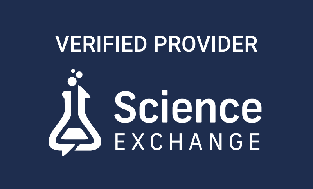Cell therapies use functional living cells to manage or cure diseases. Cell therapies can be autologous or allogeneic – autologous cell therapies are personalized where a patient’s cells are isolated, modified and then reintroduced to the patient. Autologous therapies have been clinically successful and 5 therapies that target various cancers have been approved by the FDA1. However, autologous cell therapies have manufacturing challenges including long turnaround times, inconsistent source material and interpatient variability. Additionally, supply logistics can be challenging with autologous therapies. Allogeneic therapies are derived from a single donor source which is used to create a master cell bank. Allogeneic therapies have several advantages since they are off the shelf material that have quick turnaround times and simple shipping logistics. Additionally, there is minimal variability in the source material which allows for more control over the therapy’s performance. However, allogeneic therapies have significant challenges due to transplantation of foreign material2and may induce graft vs host disease (GVHD) or the patient’s immune system may attack and clear the infused cells3. Currently, alternative cell therapy sources to treat specific diseases are being investigated including virus-specific T cells and unconventional T cell types such as CD1 T cells, MR1-restricted T cells, and gamma-delta-TCR T cells3. Virus-specific T cells show high antigen specificity which may be impacted by the introduction of an engineered CAR or chimeric antigen receptor. Additionally, the virus-specific T cells were shown to have reduced efficacy over time. CD1 T cells are also being investigated as potential cell therapy sources as different cell types have been shown to express different CD1 forms. B cells express CD1c but antigen presenting cells have been shown to express all 5 (CD1 a-e) forms. There is active research on the potential of using T cells expressing one or more CD1 forms but this work is currently in early stages. Gamma-delta T cells are a rare type of T cells that been shown to be safe but have limited efficacy. However, gamma-delta T cells seem to be amenable to T cell engineering but more work needs to be done to demonstrate efficacy3.
A new method to generating allogeneic T cells has been gaining interest where induced pluripotent stem cells (iPSCs) are gene edited before differentiation into mature T cells4. In a recent 2021 paper, scientists at Kyoto University engineered iPSCs that had no β2-microglobulin, class-II MHC transactivator (CIITA) or CD155 expression while overexpressing single-chain MHC class-I antigen E5. These T cells were also engineered to express CD20 chimeric receptor and were found to evade immune surveillance in a leukemia/lymphoma mouse model that expressed CD205. Another recent study took a similar approach where β2-microglobulin and CIITA expression were disrupted by CRISPR-Cas9 gene editing and CD47 was overexpressed in mouse iPSCs6. The engineered iPSCs were differentiated into either cardiomyocytes or endothelial cells and were tested in models of peripheral arterial disease, ischemic heart failure and A1AT deficiency related lung disease6. The iPSC derived cardiomyocytes improved heart function while the iPSC-derived engineered endothelial cells improved lung function in the mouse models.
In conclusion, these early studies are proof of concept that iPSCs can be engineered with desirable characteristics prior to differentiation into mature cells that serve as cell therapies. More importantly, the iPSC derived differentiated cells appear to evade immune recognition and have the potential to be developed into hypoimmune allogeneic cell therapies that can treat multiple disease conditions including cancer, heart failure, lung diseases etc.
References:
2https://www.sciencedirect.com/topics/engineering/allogeneic
3https://www.frontiersin.org/articles/10.3389/fimmu.2020.583716/full


